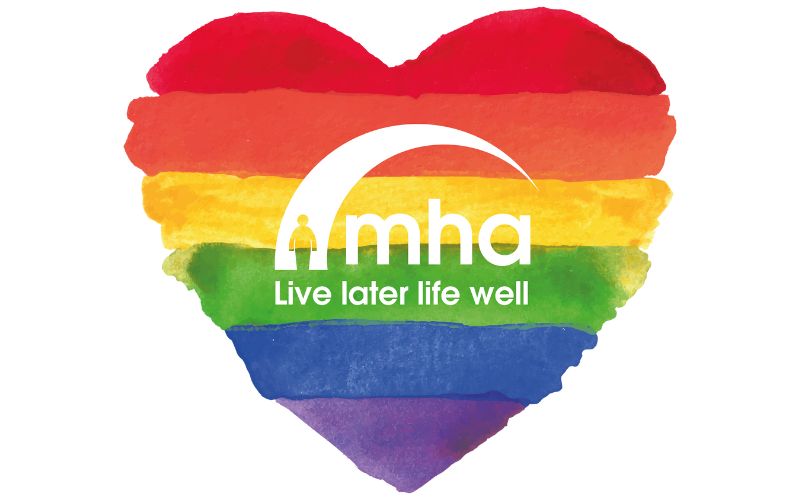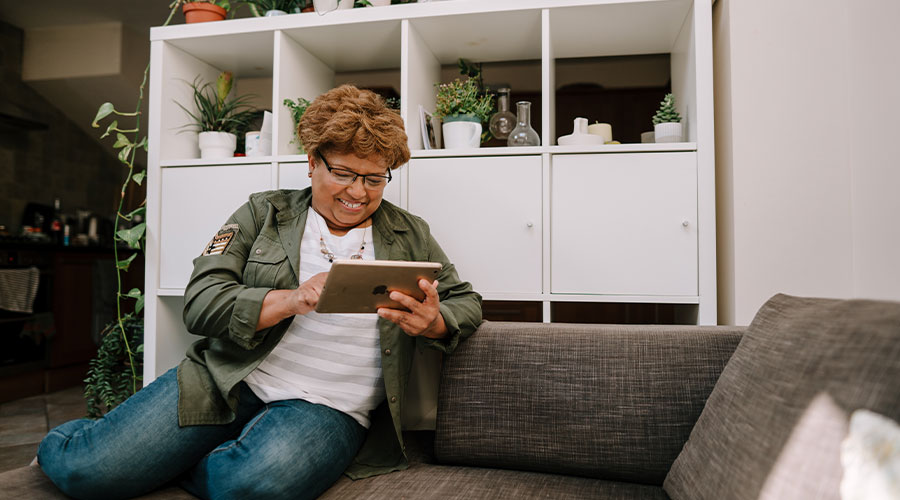- A
- A
- A
LGBTQ+ Remote Befriending
Providing support and friendship to older people impacted by the feelings of loneliness and isolation
Our telephone and online befriending service provides support and friendship to people who are living in their own homes who may be feeling isolated or lonely.
By volunteering with us, you could support an older person with a regular weekly phone or online call. This specialist telephone befriending service aims to address the greater risk of loneliness and depression that may face older LGBTQ+ people.
You may identify as LGBTQ+ yourself, or may be an ally, but you will be happy to share conversations that may include the person’s sexual orientation or gender expression, and their lived experiences. Applicants must be aged 18+.
For more information about our Befriending services and how they work, please our Befriending page.

Why volunteer for MHA?
We are a charity that inspires the best care and wellbeing at every stage of later life. Each individual that makes up our team is valued and is part of a community that is dedicated to improving the lives of older people.
We are proud to support all our residents with pastoral care through our dedicated chaplaincy service. We place great importance on nurturing the mind, body and spirit of those we care for, their families, colleagues and volunteers regardless of faith, background or belief.

Pride in MHA
Our 'Pride in MHA' network supports anyone within MHA who identifies as LGBTQ+ or an ally. The network meets regularly online to share stories and information, and to work towards a more inclusive MHA.
Frequently Asked Questions (FAQs)
Befriending is a service that provides support and friendship to older people who may be feeling lonely or isolated. Befrienders can offer face-to-face, telephone, or online contact with an older person on a regular basis.
Befriending can help reduce feelings of social isolation and loneliness, improve mental and physical health, increase confidence and self-esteem, and enhance the quality of life of older people.
- Are aged 18 and over
- Good listening skills
- Patience, empathy, and understanding of the needs of older people
- Ability to keep records of visits made
- Flexible, reliable, and punctual
- A clear sense of personal boundaries and confidentiality
- Able to provide non-judgemental support
- Engage with training and development.
You can apply online by filling out a short application form. You will also need to complete a DBS check and attend an induction training session before you start your role. Our Volunteering Team will guide you through the application prcoess and be on-hand to answer any questions you may have.
Our befrienders are matched with someone taking into account the needs and interests of the older person. Befrienders will then be introduced to the person they are going to support and the whole process is overseen by a local MHA Communities scheme or our Central Befriending team who will be there to help and support both the volunteer and the older person every step of the way.
Befriending can be flexible depending on the needs of the older person but usually, a regular time and day would be agreed on at least initially. Often but not always, visits and/or phone calls occur weekly.
The time commitment varies depending on the type of befriending you choose and the availability of the older person you are matched with. Generally, we ask for a minimum of one hour per week for at least six months.
You will receive ongoing support and guidance from a local coordinator who will match you with an older person, monitor your progress, and provide feedback. You will also have access to online resources, training opportunities, and peer support from other befrienders.

Subscribe To Our Newsletter
Keep in touch with our latest news, updates and how you can get involved to support MHA.
Sign Up